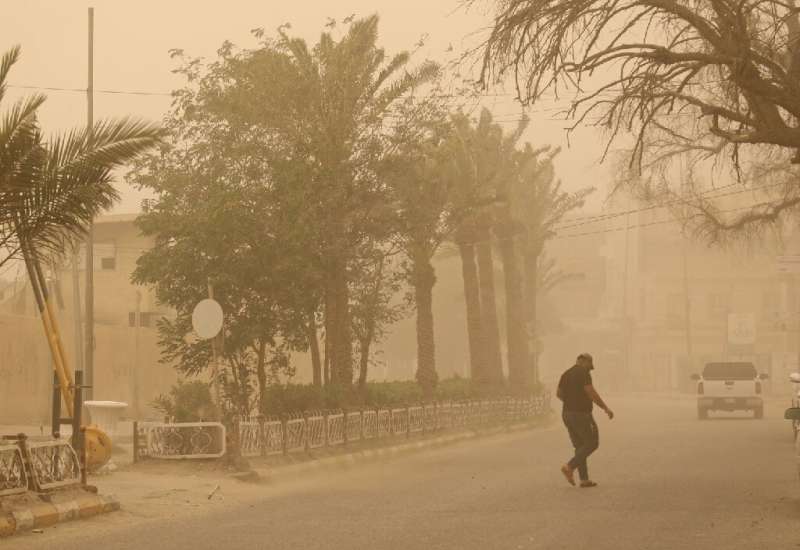
Sri Lanka's 22 million people have seen weeks of power blackouts and severe shortages of food, fuel and other essentials in the country's worst downturn since independence in 1948.
Saturday's social-media organised protest drew the largest numbers since the crisis blew up last month, according to AFP reporters. And pressure on Rajapaksa intensified further as the country's powerful business community also began withdrawing support for the president.
Men and women poured onto Colombo's seafront promenade and laid siege to the colonial-era Presidential Secretariat, chanting "go home Gota" and waving the national lion flag.
Others carried handwritten placards that read "it's time for you to leave" and "enough is enough."
Barricades blocked the entrance to the president's office with police in riot gear taking up positions inside the tightly guarded compound.
"These are innocent people here. we are all struggling to live. The government must go and allow a capable person to lead the country," one man told the crowd.
The protests appeared to be peaceful, but a police official said teargas and water cannon were at the ready if needed. On Friday security forces fired water cannon at demonstrating students.
Residents said there were widespread protests in the suburbs of the capital too while the Catholic and Anglican churches also brought their followers onto the streets.
The head of the Catholic Church, Cardinal Malcolm Ranjith led a protest in the town of Negombo, just north of Colombo, urging people to continue protesting till the Rajapaksa administration resigned.
"Everyone must get on the streets till the government leave, these leaders must go. You must go. You have destroyed this country."
Fuelling losses
Sri Lanka's business community, which largely funded Rajapaksa's election campaign, also appeared to ditch the president on Saturday.
"The current political and economic impasse simply cannot continue any further, we need a cabinet and interim government within a week at most," said Rohan Masakorala, head of Sri Lanka Association of Manufacturers and Exporters of Rubber products.
His association joined 22 other business and industry organisations, seeking a change of government, saying daily losses had reached around $50 million due to the fuel shortage alone.
In a joint statement, they said that they were responsible for generating nearly a quarter of the country's $80.17 billion gross domestic product and warned millions of jobs would be in jeopardy.
Newly appointed central bank governor Nandalal Weerasinghe said a series of monetary policy blunders had led to the current crisis with no dollars to finance many imports.
In a desperate attempt to shore up the free-falling rupee, Weerasinghe on Friday implemented the country's biggest-ever interest rate hike of 700 basis points.
"We are now in damage control mode," he said.
Weerasinghe added he expected the rupee to stabilise and dollar inflows to improve as he relaxes his predecessor's tight foreign exchange restrictions which he described as counter-productive.
The government is preparing for bailout negotiations with the International Monetary Fund next week, with finance ministry officials saying that sovereign bond-holders and other creditors may have to take a haircut.
New finance minister Ali Sabry told parliament on Friday that he expects $3 billion from the IMF to support the island's balance of payments in the next three years.
"We hope to get about a billion dollars a year in the next three years totalling a support of three billion," he said adding that Colombo will also seek a debt moratorium.
(AFP)



.jpg)

















:quality(70)/cloudfront-eu-central-1.images.arcpublishing.com/thenational/57WFHDM2KFS2FL2DZFZX4TL5FI.jpg)
:quality(70)/cloudfront-eu-central-1.images.arcpublishing.com/thenational/4KQRWZNWBXLJZA27GNYF37W4TQ.jpg)